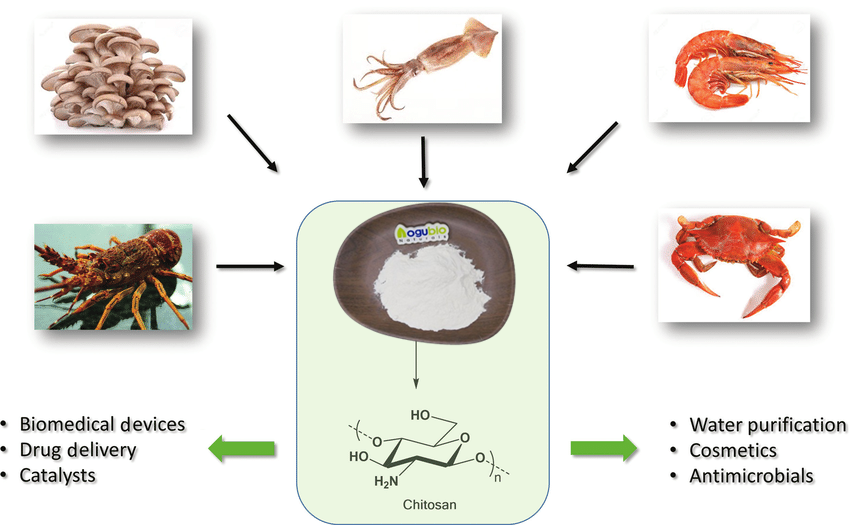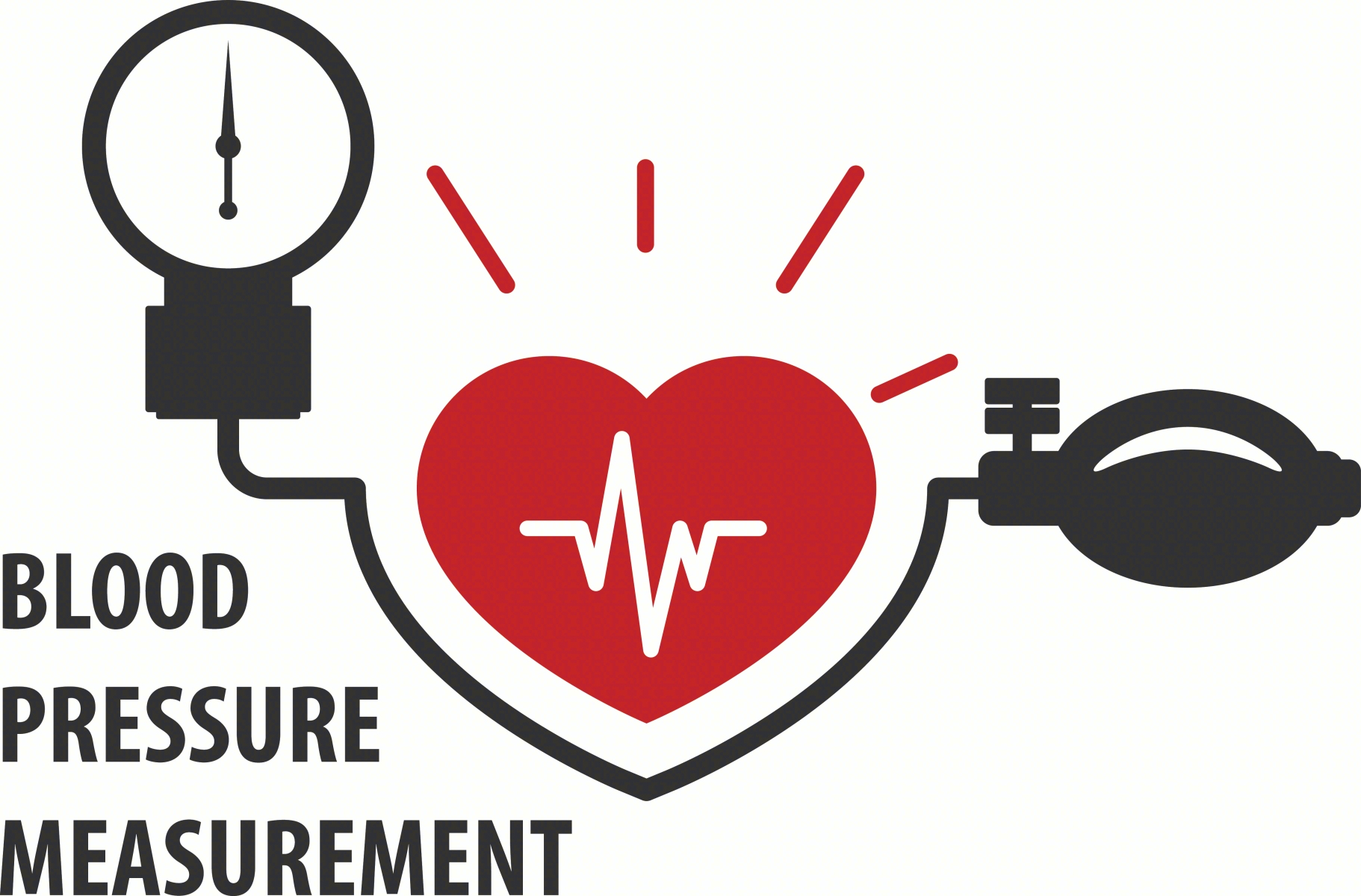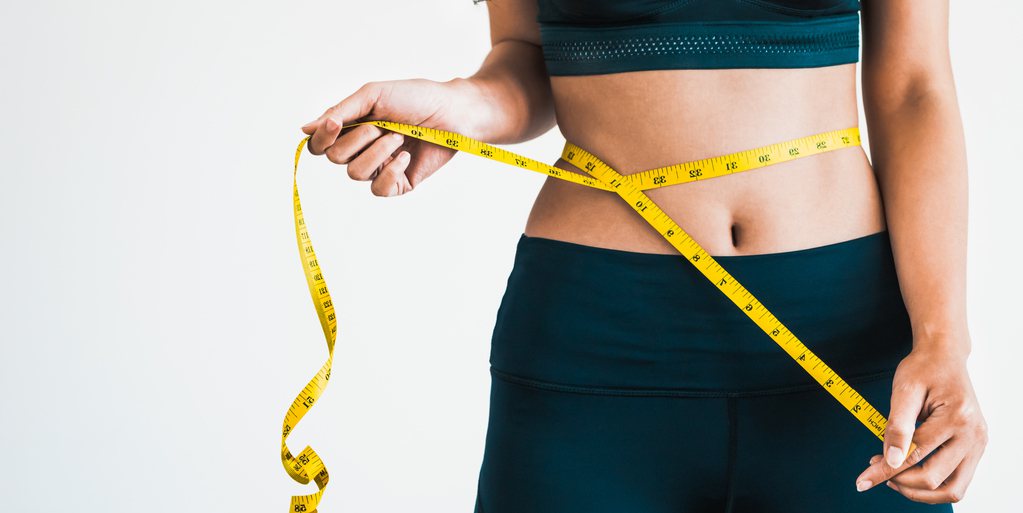What Is Chitosan, and How Does It Work?
Looking for a natural way to support weight loss and lower cholesterol levels? Chitosan is your answer. Chitosan, derived from chitin (a fibrous compound found primarily in the hard exoskeletons of crustaceans and in the cell walls of some fungi), is a powerful supplement that can help achieve these health goals. At AOGU Bio, we specialize in the production and distribution of pharmacologically active substances and raw materials, including chitosan, for use in human supplements, pharmacy products, and the pharmaceutical, food, nutraceutical and cosmetic industries.
Chitosan is produced through an enzymatic reaction that creates a form more suitable for supplementation. This means it is easily absorbed by the body, making it effective in promoting weight loss and lowering cholesterol levels. Aogubio's focus on natural and sustainable sources ensures that our chitosan is of the highest quality and does not contain any harmful additives or chemicals.

Benefits of Chitosan Supplements
Through scientific research, chitosan has been found to possess antimicrobial, antioxidant, anti-inflammatory, and other properties. These biological properties may be useful for a variety of health conditions.
Studies continue to emerge as researchers learn more about the polysaccharide and its potential applications. Some of the possible uses of chitosan are outlined below.
- May Decrease High Blood Sugar
Chitosan has been proposed as a complementary treatment for high blood sugar, a common symptom of both metabolic syndrome (a group of conditions that together can lead to heart disease, diabetes, and stroke) and type 2 diabetes.
Animal and laboratory studies have found a link between chitosan and improved blood sugar regulation through decreased insulin resistance (when muscle, liver, and fat cells do not respond well to insulin and cannot take up glucose from the blood, creating the need for the pancreas to make more insulin) and increased blood sugar uptake by tissues. These benefits have been tested in various clinical trials.
A meta-analysis of 10 clinical trials found somewhat conflicting results regarding the effectiveness of chitosan in lowering blood sugar. While chitosan appeared to decrease fasting blood sugar and hemoglobin A1c (HbA1c), a blood test to check the average blood sugar levels over three months, it did not have a significant effect on insulin levels.
Researchers pointed out that the best results were seen when chitosan was used at a dose of 1.6 to 3 grams (g) per day and for at least 13 weeks.
One study found that chitosan may also play a role in diabetes prevention. In the study, participants with prediabetes (when blood glucose levels are high but not high enough to be considered diabetes) were randomized to take either a placebo (a substance of no benefit) or chitosan supplement for 12 weeks. Compared to the placebo, chitosan improved inflammation, HbA1c, and blood sugar levels.
Overall, human trials on chitosan for blood sugar control are lacking in study size and design. Additional research is needed in this area.
- May Decrease High Blood Pressure
A limited number of clinical trials have shown a relationship between chitosan and blood pressure. More specifically, chitosan has been found to reduce high blood pressure in some small-scale human studies. However, some research results have been mixed.
Chitosan is thought to reduce blood pressure by binding with fats and carrying them through the digestive tract to be made into feces.

Increased fat excretion would lead to reduced levels of fats in the blood, a risk factor for high blood pressure.
A review of eight studies concluded that chitosan may lower blood pressure but not significantly. The best results came when chitosan was used in high doses but for shorter periods. Diastolic blood pressure (but not systolic blood pressure) decreased significantly when chitosan was taken for less than 12 weeks at doses greater than or equal to 2.4 g per day.
Although these results may appear convincing, they are not definitive proof that chitosan supplementation lowers blood pressure. More research is necessary to further explore the relationship between chitosan and blood pressure.
- May Help With Weight Loss
Probably the most popular health claim of chitosan is that it may help with weight loss. While there is some evidence to support this claim, it's important to remember that using dietary supplements as a sole measure for weight loss is not recommended.

Chitosan derived from fungi was used in one clinical trial involving 96 adult participants who were classified as overweight or having obesity. Participants were given capsules that contained either a placebo or 500 mg of chitosan and were asked to take them five times per day for 90 days.
Compared to the placebo, results showed that chitosan significantly reduced body weight, body mass index (BMI), and anthropometric measurements (blood, muscle, and fat measurements) in the study participants.
In a different study, chitosan was compared to a placebo in 61 kids classified as overweight or having obesity. After 12 weeks, chitosan use resulted in decreased body weight, waist circumference, BMI, total lipids, and fasting blood sugar in the young participants. These results are thought to be due to chitosan's ability to remove fat from the digestive tract for excretion.
Despite these results, larger human trials should be conducted before chitosan can be safely recommended for weight loss.
- May Promote Wound Healing
Due to its antimicrobial and structural properties, there is interest in using topical chitosan for wound healing.
Research shows that chitosan aids in the wound healing process. Chitosan has been found to have antibacterial effects, which are vital to wound healing. It has also been found to increase the rate of skin proliferation (the making of new skin).
Recently, researchers have looked at chitosan hydrogels, which contain water and can be used similarly to bandages. Chitosan hydrogels may decrease the risk of infection that can affect some wounds.
A recent trial tested a chitosan wound dressing on people with second-degree burns. The chitosan dressing decreased both pain and the time it took for the wounds to heal. Chitosan was also found to reduce incidents of wound infection.
In another small study, chitosan dressings were used on diabetic wounds and compared to another wound dressing made from nanosilver particles. The effectiveness of the chitosan dressing was found to be similar compared to the nanosilver dressing. Both dressings led to gradual healing in the diabetic wounds and also prevented infections.
Dosage: How Much Chitosan Should I Take?
Currently, there are no dosage guidelines for chitosan supplements.
In clinical trials, chitosan dosing ranged from 0.3 g per day to 3.4 g per day in adults. Chitosan was also commonly used for 12 to 13 weeks in the trials.
It's recommended that you follow dosage directions as indicated on the supplement label. You can also obtain dosage recommendations from a healthcare provider.
At AoguBio, we understand the importance of providing natural and effective solutions for health and wellness. Our chitosan is rigorously tested to ensure its purity and potency, giving our customers peace of mind knowing they are using a reliable and trustworthy product. With an unwavering commitment to quality, we strive to make our chitosan available to everyone who can benefit from its exceptional properties.
Whether you want to support your weight loss journey or improve your heart health, chitosan offers a natural and effective solution. With Aogubio's dedication to quality and purity, you can trust that our chitosan supplements will deliver the results you want. Add chitosan to your daily routine and experience the incredible benefits firsthand. Aogubio is proud to offer this exceptional product to support your health and wellness goals.
Article writing:Miranda Zhang
Post time: Mar-01-2024




